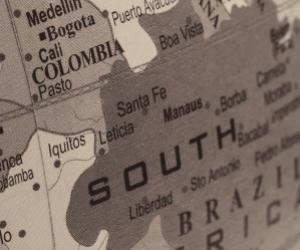
The National Association of Games and Lotteries (ANJL) has reiterated its dedication in ensuring a safe legal betting market in Brazil in response to pressure from the nation’s retail sector.
On 19 September 15 entities from the retail and industry sectors, named the ‘Proposal for the Nation’, signed a manifesto on online gambling. Thursday (26 September), the The ANJL and Brazilian Institute of Legal Gaming (IJL) shared their reply with iGB. The groups say they are committed to a safe, regulated market in Brazil.
Among the proposals included in the manifesto are the promotion of the risks associated with gambling, as well as the regulation of advertising. It also calls for a ban on the use of credit cards to be brought forward. The current prohibition only set to come in when the legal market goes live on 1 January 2025.
Additionally, the manifesto calls for betting companies to assist problem gamblers in getting treatment. It also suggests reviewing the 12% tax on gross gaming revenue (GGR) outlined in Law 14,790/2023, which legalised online gambling. The writers of the manifesto aim to make it “more burdensome” for bettors and gambling businesses.
The launch of the legal market is just over three months away.
“The ANJL and the IJL fully agree that proper regulation is key to protecting consumers and avoiding any negative impact on society, especially the most vulnerable,” the letter reads.
“They also agree that the regulation should create a stable and harmonious environment between the fixed-odds betting sector and the other sectors of the Brazilian economy, obviously encompassing the retail and consumer sectors.”
Growing pressure on Brazil’s gambling sector
Brazil’s gambling sector has come under fire in recent weeks for its perceived impact on other sectors, especially retail.
The ANJL already hit back after a controversial study from the Brazilian Society of Retail and Consumption (SBVC). The study claimed 23% of those who commit part of their salary to betting each month had stopped buying clothes. In addition, it revealed that 11% dropped their spending on healthcare and medication.
In response, the ANJL pointed to data from the Brazilian Institute of Geography and Statistics which instead displayed household consumption expenditure in the country had risen 1.3% in Q2 from the quarter prior, with a year-on-year increase of 4.9%.
Another hot topic is illegal gambling. Recent Yield Sec data claimed onshore operators could account for 9% of Brazil’s total online gambling market.
Brazilian legislators first signed legislation to allow betting into law in 2018. It took until December 2023 for the chamber of deputies to give the final green light to regulate gambling. In the ANJL and IJL’s view, this delay gave rise to the black market.
“It is necessary to note, initially, that the problems faced by all segments, including fixed-odds betting, are due to the absence of regulation for more than five years, which has enabled the emergence of hundreds of illegal sites,” the letter continued.
The discourse on advertising
Another point of contention has been advertising. On this topic, the ANJL has been active in encouraging responsibility from operators.
In early September, ANJL president Plínio Lemos Jorge advised legal operators to be cautious. He said they should use clear advertising, helping channel bettors towards the onshore market.
Normative Ordinance No 1,231, published in July, limited influencer advertising and ordered operators to “act diligently” in their marketing.
The ‘Proposal for the Nation’ manifesto called for further regulation on advertising communication, sponsorships and other forms of the encouragement of betting.
A survey by market research specialist Hibou found 66% percent of respondents said wagering for financial gain was their motivation. The ANJL and IJL responded saying betting should be advertised as entertainment, not a way of earning money.
“The ANJL and the IJL repudiate any form of disclosure, advertising or encouragement of indebtedness or irresponsible gambling, which induces compulsive behaviour.”
ANJL calls for collaboration
A key theme of the ANJL and IJL’s letter is their shared desire for collaboration. The groups wrote that all sectors in Brazil must work together to ensure a smooth transition into legal betting.
The two bodies called for an intersectoral meeting to be set to address queries and concerns. The groups said they are open to “collaboration and constructive dialogue with public authorities and, especially, with the federal government, as well as other sectors of the economy and Brazilian society.
“The association and the institute reiterate their willingness to dialogue and collaborate with all stakeholders, with the aim of building a safe and properly regulated market, ensuring consumer protection and combating harmful practices.”
Despite the recent pressure, the ANJL and IJL say they believe regulations will create a safe environment for Brazil bettors.
“Brazil is about to have robust and responsible regulation, which will be among the best in the world, in order to curb abusive practices and ensure that online betting and gaming develop in a sustainable way and for the benefit of society as a whole.
“The sector is committed to awareness campaigns and the development of consumer protection tools.”